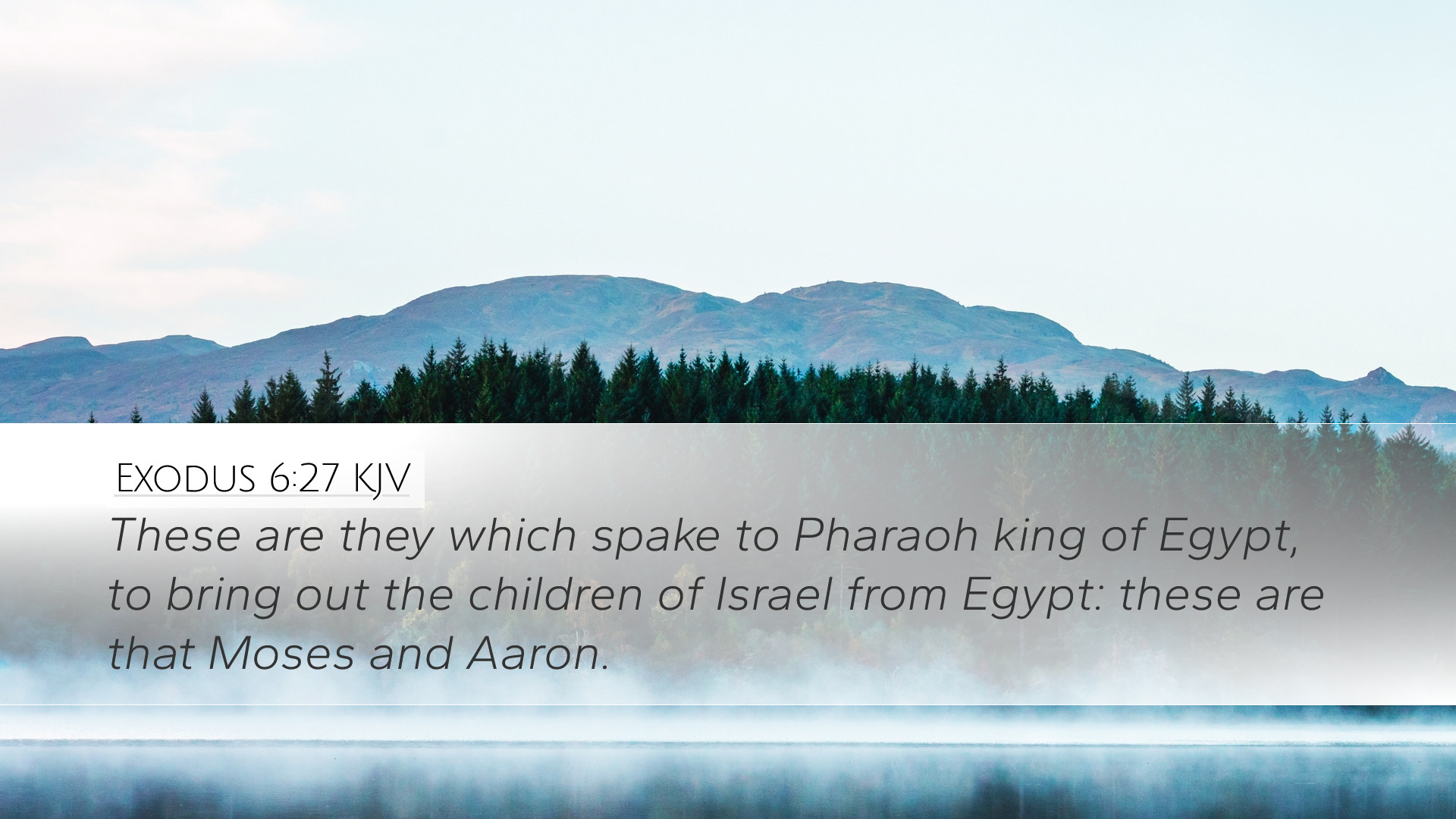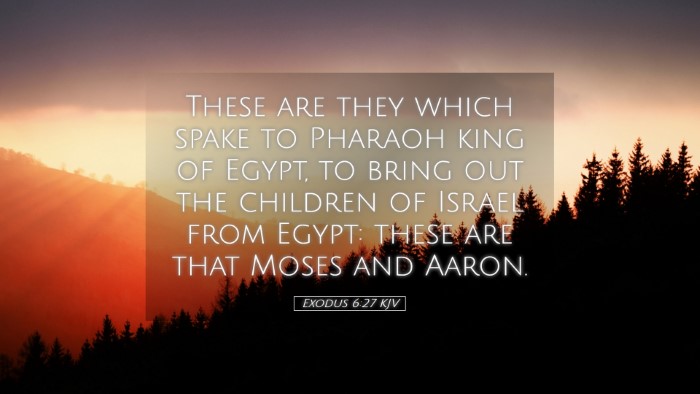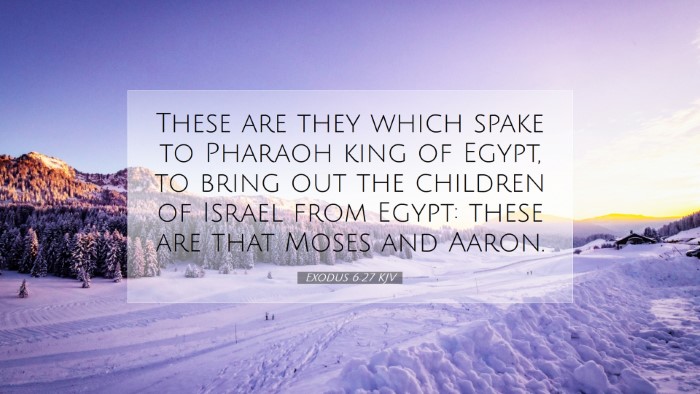Commentary on Exodus 6:27
Verse: Exodus 6:27 - "These are they which spake to Pharaoh king of Egypt, to bring out the children of Israel from Egypt: these are that Moses and Aaron."
Introduction
Exodus 6:27 serves as a significant verse within the narrative of the Exodus, encapsulating the essence of Moses and Aaron's divine commission. It acts as a reminder of their critical role in the liberation of the Israelites from Egyptian bondage, highlighting their identities as God's chosen instruments. This commentary pulls insights from esteemed public domain commentaries to provide a rich understanding that can benefit pastors, students, theologians, and Bible scholars alike.
Contextual Overview
The Book of Exodus details the Israelites’ plight in Egypt, their suffering under bondage, and God's divine plan for their deliverance. In this chapter, we see the culmination of a divine revelation to Moses, who is reassured of God’s covenant with Israel, despite the hardships they are facing. Exodus 6:27 provides a pivotal identification of Moses and Aaron as the key figures in God's plan against Pharaoh.
Exegesis of the Verse
According to Matthew Henry, this verse is essential in affirming Moses' and Aaron's authority and mission. It emphasizes that despite their initial hesitations, both leaders were divinely appointed to confront Pharaoh. Henry points out that their success lay not in their abilities but in God's promises and presence with them.
Albert Barnes complements this by noting the significance of naming Moses and Aaron directly. Their identification here establishes their leadership roles and highlights their relationship, as well as the trust that God placed in them. Barnes emphasizes that it was crucial for the Israelites to recognize that these two men were God’s chosen messengers.
Adam Clarke expands on the aspect of divine appointment, asserting that Moses and Aaron were called to a monumental task that required immense courage and faith. Clarke explains that their lineage and backgrounds were also important in establishing their credentials. He points to the fulfillment of previous promises made to Abraham, Isaac, and Jacob, where the roles of Moses and Aaron are seen as a continuation of God's redemptive plan for His people.
Theological Implications
Exodus 6:27 encapsulates several theological themes that resonate deeply within the larger narrative of scripture:
- Divine Providence: The verse underscores God's sovereignty and providential care for His people, affirming His plans to liberate Israel.
- Covenant Faithfulness: God's commitment to His covenant with the patriarchs is explicitly shown in His choice of Moses and Aaron, which is pivotal for Jewish identity and theology.
- Human Agency and Divine Calling: The call of Moses and Aaron symbolizes the dynamic relationship between divine initiative and human response, which is critical in biblical narrativity.
Application for Ministers and Scholars
For those in ministry and scholarship, Exodus 6:27 presents various applications:
- Leadership Empowerment: Reflect on how God equips leaders for specific missions, encouraging a reliance on divine guidance over human capability.
- Recognition of God’s Work: Emphasize the importance of recognizing and affirming the roles of those called by God, fostering unity and support within church communities.
- Faith in Difficult Times: Use this verse to galvanize faith when facing challenges, drawing parallels to Moses and Aaron's struggles as they confronted Pharaoh.
Conclusion
Exodus 6:27 is a pivotal moment that establishes Moses and Aaron as key figures in God's plan of redemption for Israel. Through the insights of Matthew Henry, Albert Barnes, and Adam Clarke, we see the significance of their divine appointment and the broader theological implications of their roles. This verse invites reflection and application for contemporary believers and scholars, ensuring its continued relevance in the understanding of God's work throughout history.


